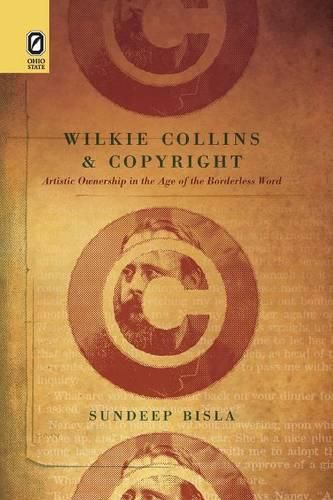Readings Newsletter
Become a Readings Member to make your shopping experience even easier.
Sign in or sign up for free!
You’re not far away from qualifying for FREE standard shipping within Australia
You’ve qualified for FREE standard shipping within Australia
The cart is loading…






This title is printed to order. This book may have been self-published. If so, we cannot guarantee the quality of the content. In the main most books will have gone through the editing process however some may not. We therefore suggest that you be aware of this before ordering this book. If in doubt check either the author or publisher’s details as we are unable to accept any returns unless they are faulty. Please contact us if you have any questions.
In the works and letters of his later years, Wilkie Collins continually expressed his displeasure over copyright violations. Wilkie Collins and Copyright: Artistic Ownership in the Age of the Borderless Word by Sundeep Bisla asks whether that discontent might not also have affected the composition of Collins’s major early works of the 1850s and 60s. Bisla’s investigation into this question, surprisingly, does not find an uncomplicated author uncomplicatedly launched on a defense of what he believes to be rightfully his. Instead, Bisla finds an author locked in fierce negotiation with the theoretical underpinnings of his medium, the written word, underpinnings best delineated by the twentieth-century deconstructionist Jacques Derrida. Collins’s discomfort with copyright violation comes to be in tension with his budding understanding of the paradoxical nature of the iterability of the word, a nature presenting itself as a conflict between the settling and breaking manifestations of linguistic repetition. In his efforts at resolving this paradox, Collins adopts a mechanism of recursive self-reflexivity through which each story reflects upon itself to a more fundamental extent than had its predecessor. This self-reflexive exploration has significant consequences for the author’s own iterability-menaced subjectivity, a striking example of which can be seen in the fact that the name being sought in Collins’s last masterpiece, The Moonstone, will end up being MY OWN NAME – in other words, WILKIE COLLINS.
$9.00 standard shipping within Australia
FREE standard shipping within Australia for orders over $100.00
Express & International shipping calculated at checkout
This title is printed to order. This book may have been self-published. If so, we cannot guarantee the quality of the content. In the main most books will have gone through the editing process however some may not. We therefore suggest that you be aware of this before ordering this book. If in doubt check either the author or publisher’s details as we are unable to accept any returns unless they are faulty. Please contact us if you have any questions.
In the works and letters of his later years, Wilkie Collins continually expressed his displeasure over copyright violations. Wilkie Collins and Copyright: Artistic Ownership in the Age of the Borderless Word by Sundeep Bisla asks whether that discontent might not also have affected the composition of Collins’s major early works of the 1850s and 60s. Bisla’s investigation into this question, surprisingly, does not find an uncomplicated author uncomplicatedly launched on a defense of what he believes to be rightfully his. Instead, Bisla finds an author locked in fierce negotiation with the theoretical underpinnings of his medium, the written word, underpinnings best delineated by the twentieth-century deconstructionist Jacques Derrida. Collins’s discomfort with copyright violation comes to be in tension with his budding understanding of the paradoxical nature of the iterability of the word, a nature presenting itself as a conflict between the settling and breaking manifestations of linguistic repetition. In his efforts at resolving this paradox, Collins adopts a mechanism of recursive self-reflexivity through which each story reflects upon itself to a more fundamental extent than had its predecessor. This self-reflexive exploration has significant consequences for the author’s own iterability-menaced subjectivity, a striking example of which can be seen in the fact that the name being sought in Collins’s last masterpiece, The Moonstone, will end up being MY OWN NAME – in other words, WILKIE COLLINS.